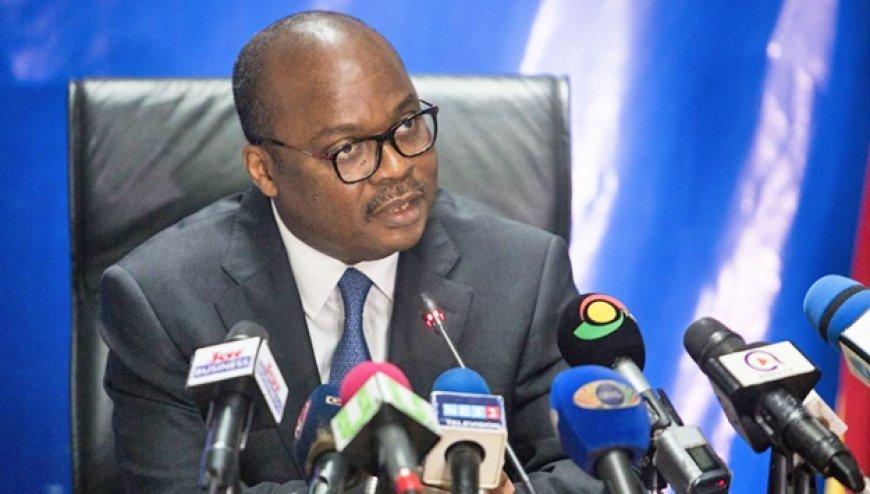Governor Addison: The IMF should continue to provide flexible support

The assistance of the International Moneyray Fund (IMF) should continue to be flexible, adjusting to both national and international circumstances while guaranteeing adequate resources, according to Dr. Ernest Addison, governor of the Bank of Ghana (BoG).
In this regard, it is crucial to preserve the Poverty Reduction and Growth Trust's high concessionality while guaranteeing sufficient funding through all available means, including the sale of gold, according to Dr. Addison.
“In this regard, it is crucial to highlight that the timing for the resumption of charging interest rates on PRGT funds (tiered interest rate structure) is inappropriate as most PRGT-eligible countries are still facing significant challenges. Relatedly, the IMF’s charges and the surcharge policy should avoid adding financial burdens on countries facing fiscal challenges. With the expiry of the Food Shock Window and rising food insecurity, especially in Africa, timely emergency financing through CCRT resources and program augmentations is essential. Intensified fundraising efforts under the second phase of resource mobilisation are paramount,” he said during the 2024 Africa Caucus Meeting with the Managing Director of the International Monetary Fund, Kristalina Georgieva, in Washington on Tuesday, October 22.
As the second topic the Fund would examine, Dr. Addison added that a cooperative strategy to tackle Africa's financial difficulties is essential.
Also Read: People should test before treating malaria, Prof. Ansah Koram says
“We urge the IMF and World Bank to coordinate their support to develop resilient fiscal policies, considering Africa’s diverse needs.“We call for tailored and enhanced technical support from the Fund and other international partners to strengthen institutional capacity in Africa. This is a key prerequisite to address the underlying causes of fiscal challenges and other bottlenecks to achieve durable and inclusive economic growth in member countries. To this end, a stronger partnership between the IMF and the Africa Peer Review Mechanism would help boost institutional capacities for country-specific fiscal governance and economic reforms across Africa and enhance the framework for identifying, managing, assessing, and integrating fiscal risks and debt sustainability.”

Finally, he said, “We urge the IMF to continue to lead in debt restructuring and relief efforts for heavily indebted countries. In this respect, the Global Sovereign Debt Roundtable (GSDR) should ensure swift, fair, and effective debt resolution under or outside the G20 Common Framework, focusing on providing timely debt relief for the most vulnerable countries. At the same time, we call for greater private sector involvement in the Common Framework to ensure comparability of treatment and faster progress on debt resolution initiatives. The Fund, through the GSDR, should also explore innovative financing solutions—such as blended finance and debt-for-climate swaps via enhanced RSF—to address both the continent’s debt vulnerabilities and climate change risks.”
Dr. Addison pointed out that the pandemic, geopolitical unrest, and shocks associated with climate change have made the African continent's fiscal problems worse. These problems include insufficient domestic income mobilization, debt vulnerabilities, and restricted access to global capital markets.





